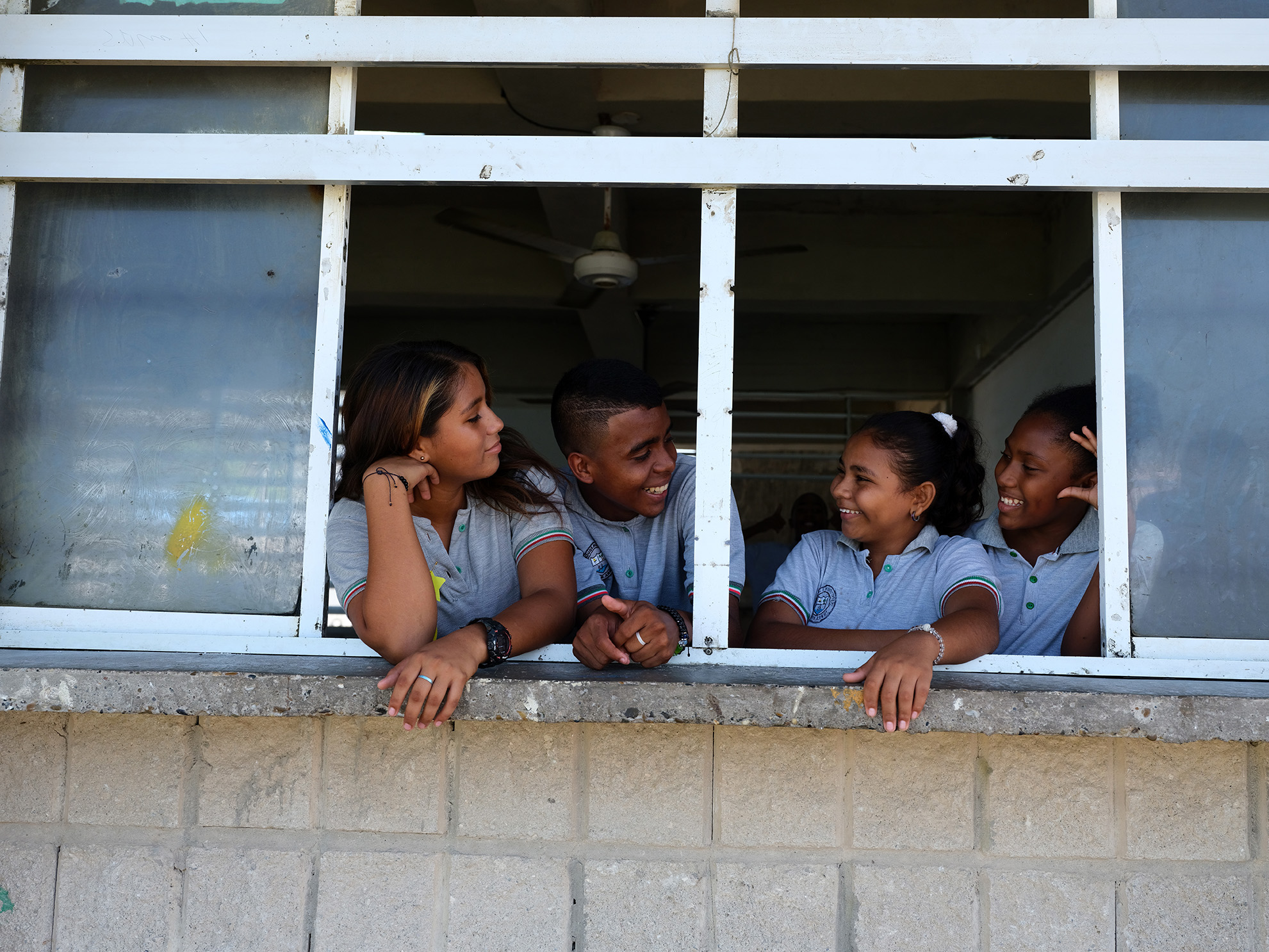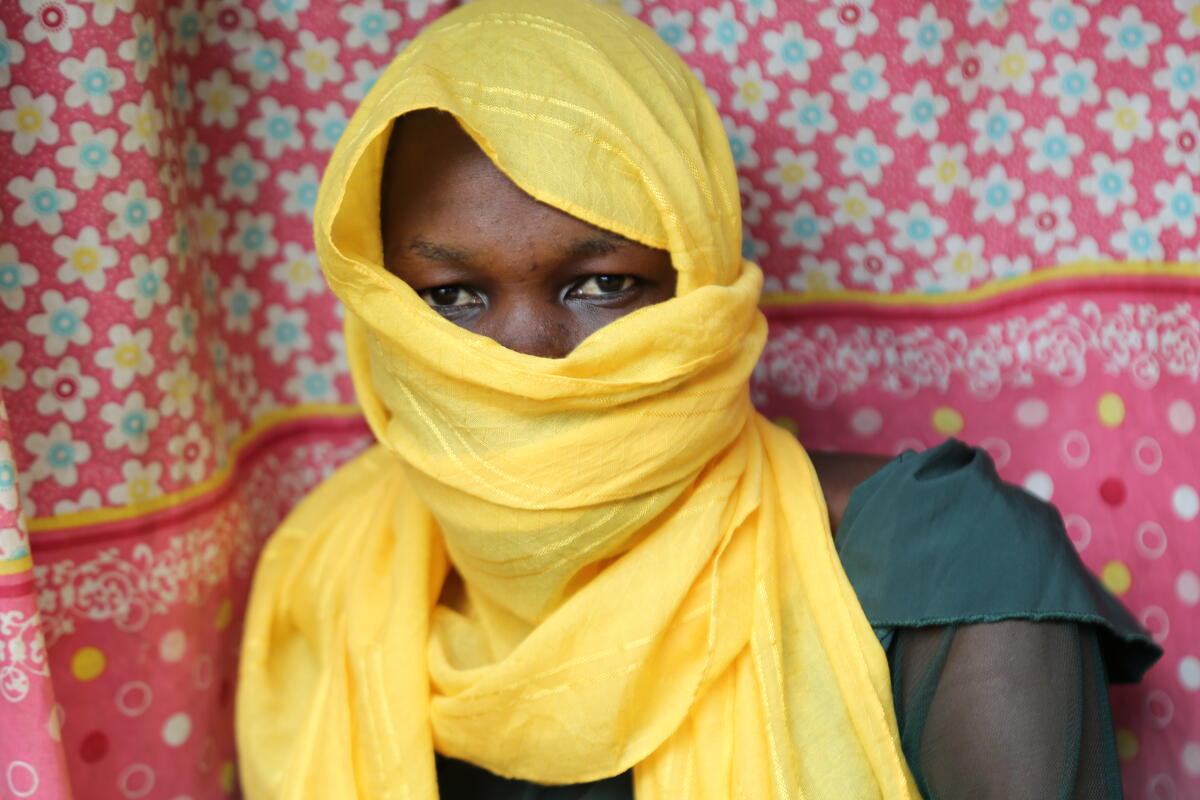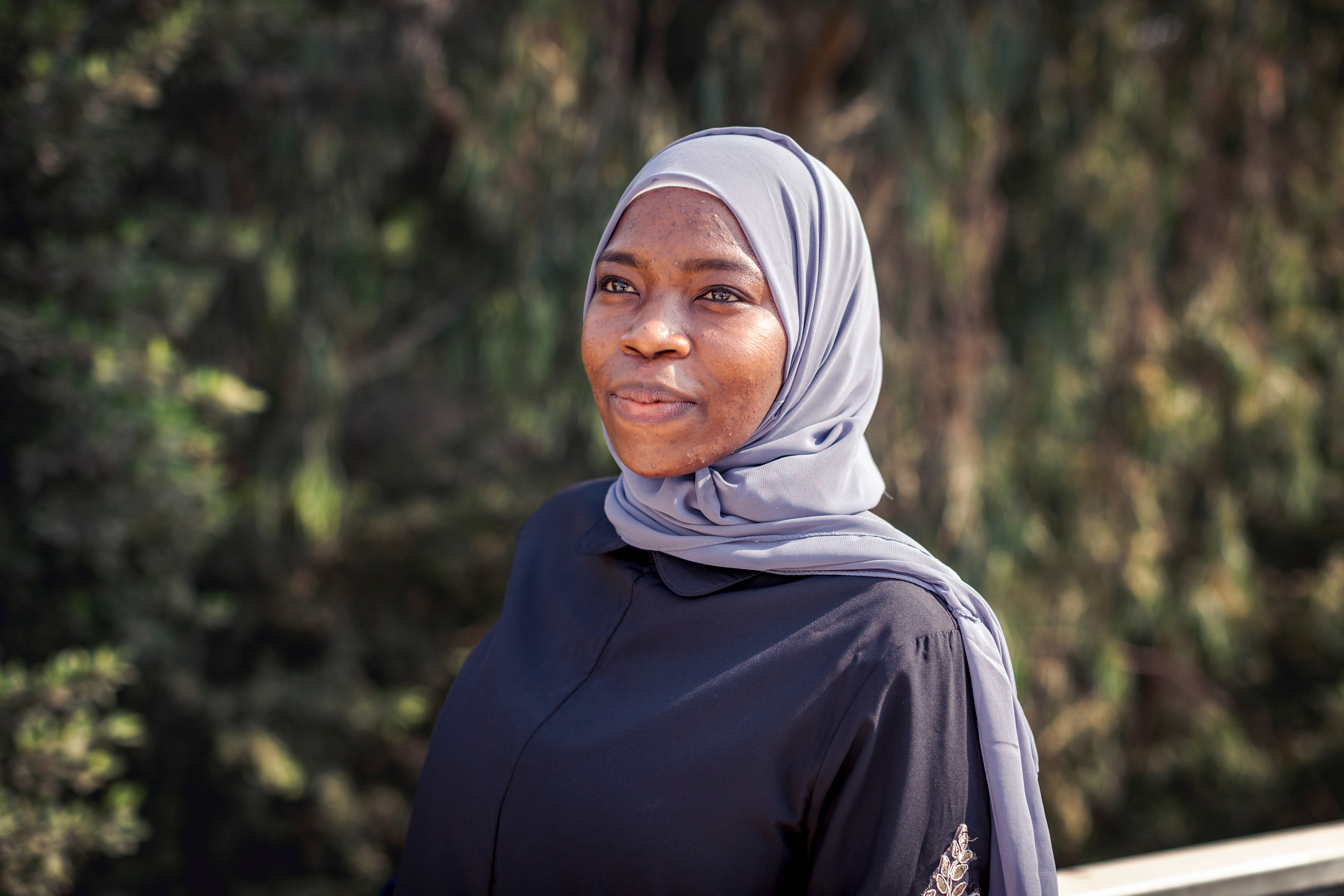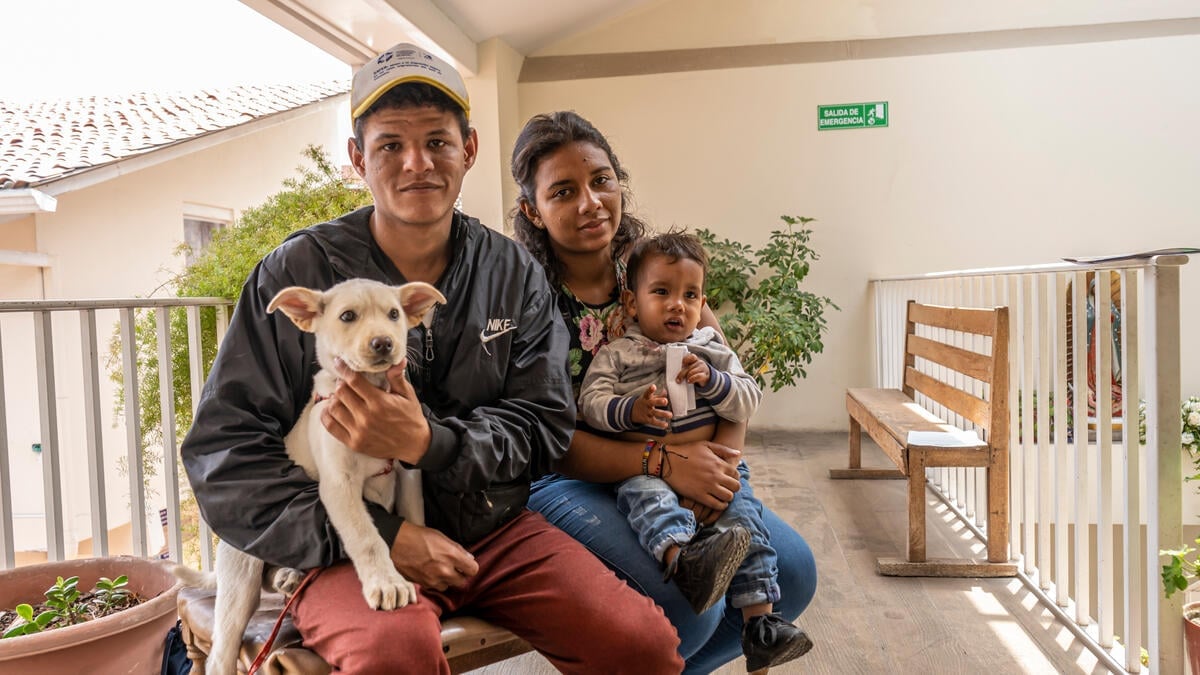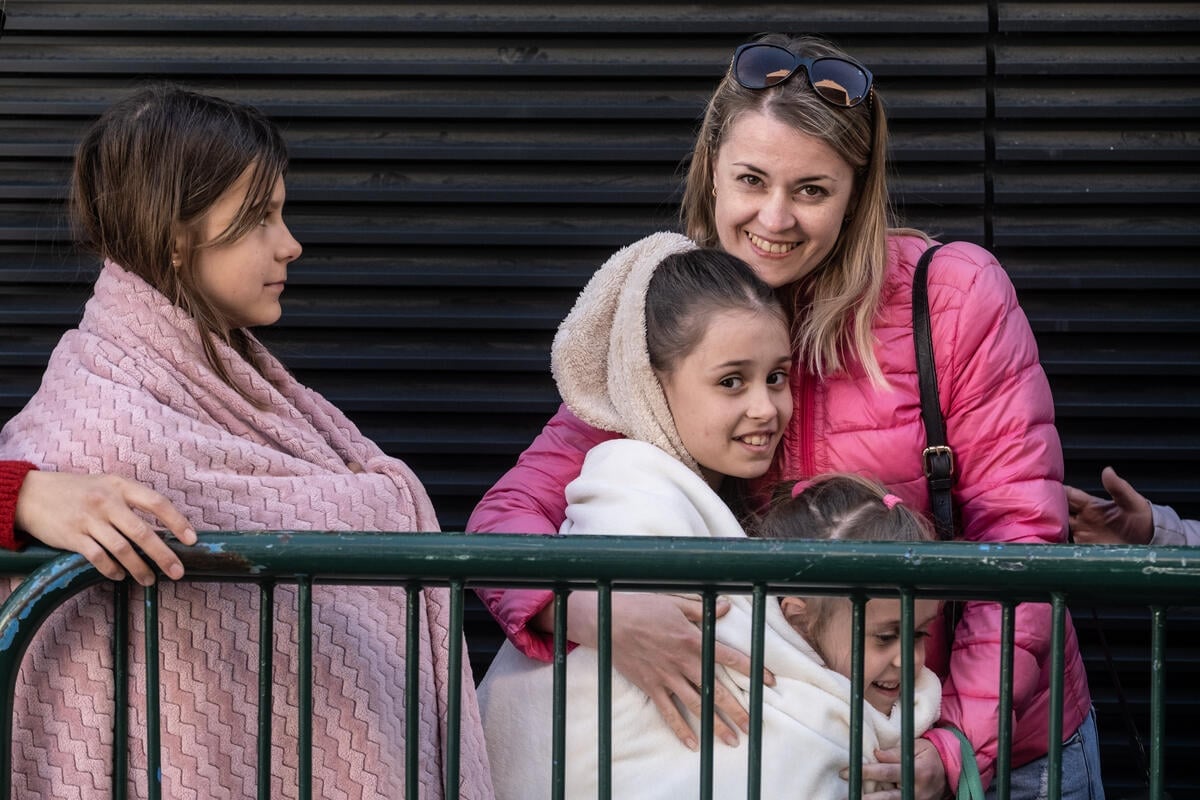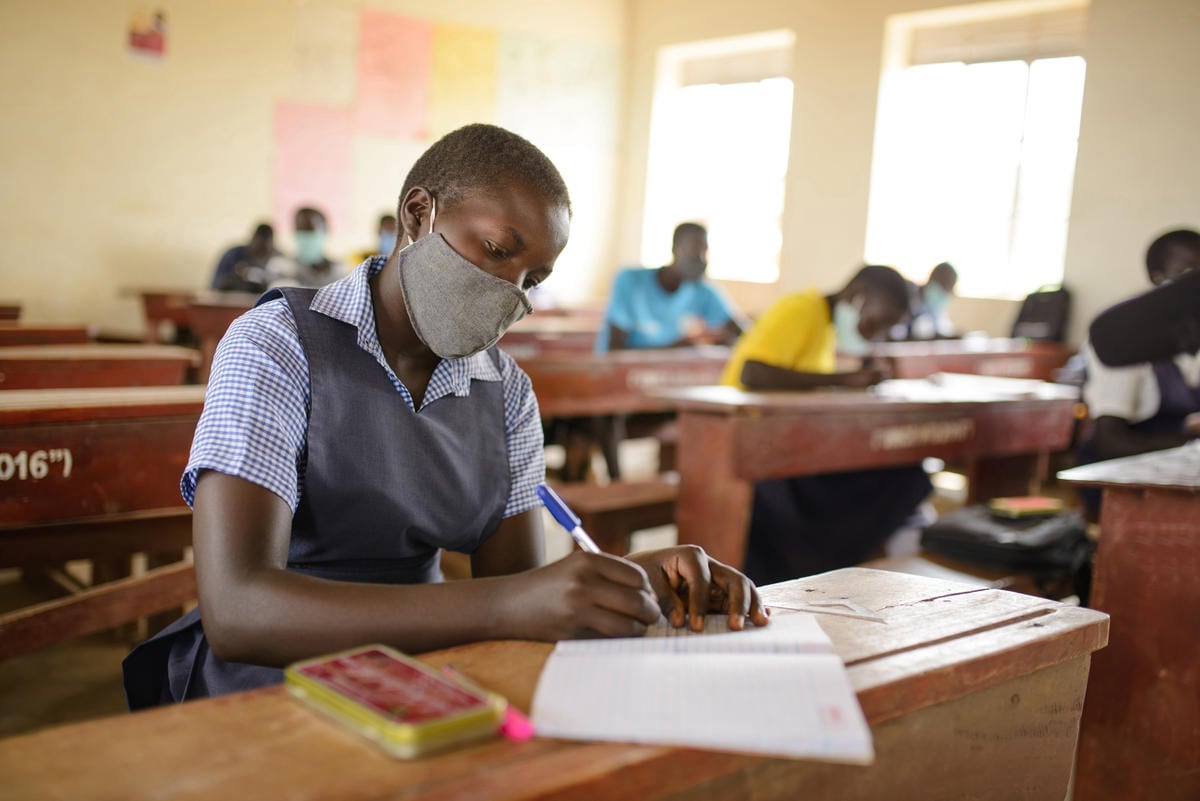Class distinctions for urban refugee girls in Uganda
Class distinctions for urban refugee girls in Uganda

KAMPALA, Uganda, July 11 (UNHCR) - War and poverty made it impossible for Elisabeth Aziza to go to school in her hometown of Bunia in eastern Democratic Republic of the Congo (DRC).
Much to her surprise, it was life in exile that provided her the opportunity. Now living in the Ugandan capital, Kampala, with her mother and four siblings, 14-year-old Elisabeth is in the sixth year of primary school.
"I never studied because of the war, and now I am the best of my class," Elisabeth said proudly after receiving a prize for her outstanding academic performance from UNHCR Representative Cynthia Burns.
The UN refugee agency is paying school fees for Elisabeth and 59 other refugee children in primary school in Kampala, as well as the fees for 20 refugee pupils in secondary school. The sums, though small in US dollar terms, would otherwise be beyond the reach of most refugee families in Kampala.
Among refugee children in the city, UNHCR gives priority to girls and disabled children. In refugee settlements in the north, where most of Uganda's 240,000 refugees live, all refugee children have the right to free primary education.
Elisabeth is older than her fellow pupils because she only started school when she reached Kampala five years ago. She finds life in Kampala difficult - "sometimes we don't know where to sleep, what to eat, and I don't have a place to study" - but at least she is getting an education, which she prizes highly. "I'm very ambitious, and I hope I will be able to stay here and finish my studies," she says.
Her mother, Aina, agrees life is hard in Kampala, but says there was no choice but to flee Bunia after rebels attacked the family's home one night in 2000.
"They killed my husband in front of our eyes, they took me and raped me," Aina says. "The next morning, I decided we had no choice: we had to flee and go to a safe place." After a journey lasting seven days and seven nights, Aina reached Kampala with Elisabeth and her four other children.
Uganda - a country whose unusually generous policy towards refugees was praised recently by the new UN High Commissioner for Refugees, António Guterres - prefers for refugees to live in settlements in the north and west of the country. There they are given land and to a large extent support themselves by farming, although they are not forced to live in settlements.
Under Ugandan law, refugees can live in Kampala if they prove they can support themselves. In contrast to many other countries, refugees in Uganda have the right to work without special government permission.
In recognition of the hardships faced by urban refugees in Kampala, UNHCR, through its Ugandan partner Interaid, pays registered refugee families a small sum of money every month for housing and food. Refugees receive medical treatment at Interaid's clinic, and UNHCR pays their medical bills if they have to stay in hospital. Most of the registered refugees in Kampala are widows with three or more children.
They need moral support as well as practical help, says UNHCR Representative Burns, who recently met refugee women in Kampala. "We unfortunately can't provide for all their needs, but I intend to meet the women regularly to see if together we can come up with some solutions to the challenges they face every day," she says.
At the same ceremony where Elisabeth was recognized, Burns also gave an award to Umi Kheri Mohannud, a refugee girl from Somalia who attends high school in Kampala and is full of big dreams.
"I want to study until I become a doctor," she said after the ceremony. "I want a better future and I want to be able to cure my mother myself when, one day, she will get old and sick."
By Roberta Russo
UNHCR Uganda


